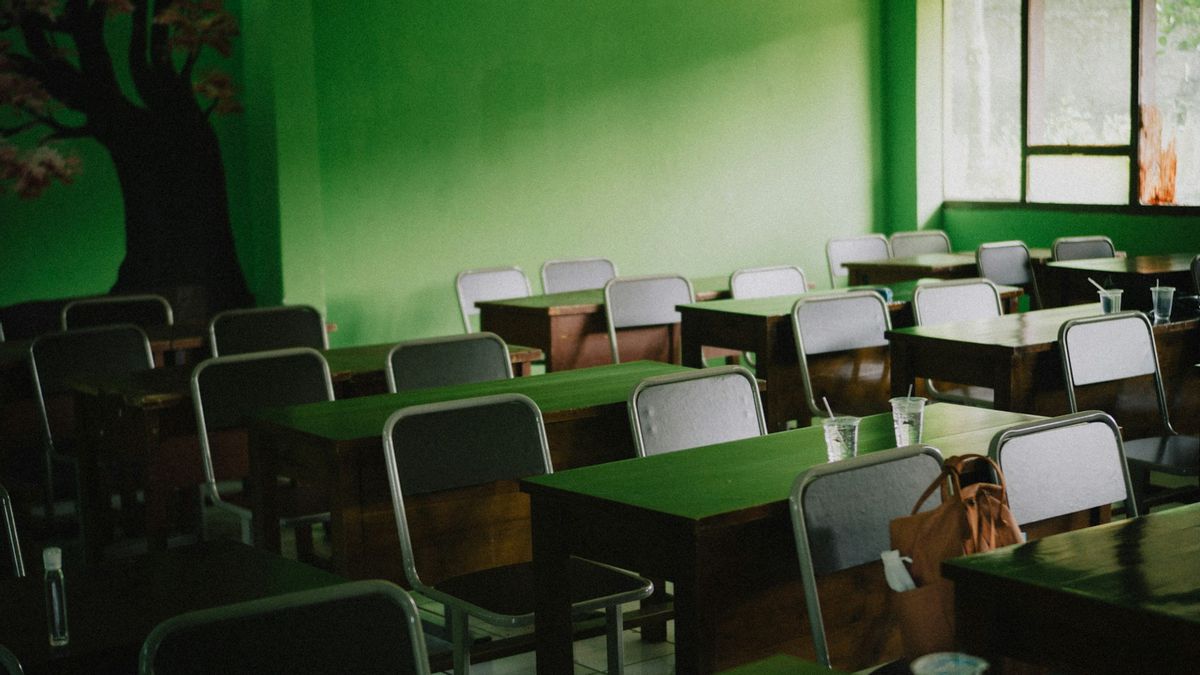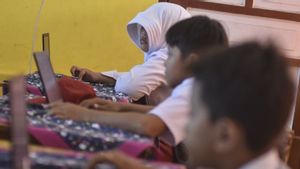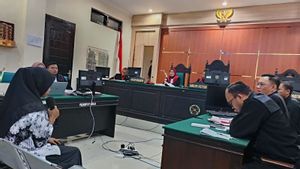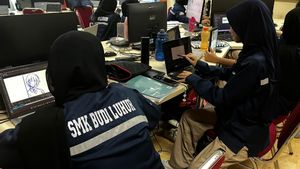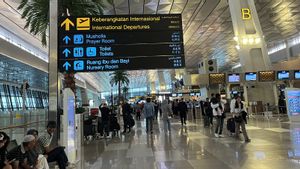JAKARTA - Member of Commission X DPR Sofyan Tan reminded the government not to frequently change the education curriculum following the issue of replacing the Merdeka Curriculum after the change of the government regime. It takes a lot of effort to do if every change of minister and then the school curriculum is also reshuffled.
"Actually, this issue almost always occurs, where every period of government changes, the education curriculum also changes. So there is a lot to be done for the process of change," said Sofyan Tan, Thursday, November 7.
The issue of changing this independent curriculum has also been a public discussion for some time. Even on social media, various memes and discussions have emerged which imply public concern that the education curriculum will be replaced again.
Karena anak-anak juga baru mulai terbiasa dengan Kurikulum Merdeka. Termasuk tuaanya yang juga pasti ikut beradaptasi untuk berbagai kebutuhan anak, tuturnya.
The issue of changing the curriculum was mentioned by Sofyan at the DPR Commission X Working Meeting with the Minister of Basic and Secondary Education (Mendikdasmen) Abdul Mu'ti. He asked the Government to consider various factors regarding the policy of the education curriculum in schools, considering that Minister of Education Abdul Mu'ti stated that he would still conduct an evaluation at the beginning of his tenure.
"That's why yesterday I said that during the meeting with the Minister, no cameo (pameo) appeared every change of minister and then policy replacement and curriculum," said Sofyan.
Sofyan reminded that changing the curriculum will have an impact on various education service infrastructures, especially in terms of human resource infrastructure (HR). Especially for teachers throughout the country, which amounted to 3,328,000 people.
The curriculum change will affect more than 3 million teachers. Unfortunately, they must return to learning and adapt to the new curriculum. Even though yesterday they also had difficulties," he said.
Sofyan assessed that the government should make adjustments to existing policies, including in terms of curriculum. He said, that does not mean that everything must be changed completely.
"Just 'Adjust'. Good things must be continued or continued. What is still not improved. I believe change is important, but that doesn't mean you have to continue to make changes because the impact is very significant," explained Sofyan.
This member of Commission X of the Indonesian House of Representatives in charge of affairs or the education sector added that changes to the curriculum will also affect the justice of educational services in Indonesia. Sofyan said this was related to the readiness of each different school.
"We cannot close our eyes, access to quality and educational infrastructure has not been evenly distributed in Indonesia. Imagine if those in areas with inadequate access to education had to start something new again. I think it would be very difficult," he said.
Indonesia has various socio-economic, geographical, and educational conditions that are still lacking in various regions. Students in remote areas often have limitations in terms of access to learning sources, school infrastructure, and assistance from teaching staff," added Sofyan.
The curriculum change is feared to worsen the student's education gap. Because, said Sofyan, not all schools have the same readiness for major changes.
SEE ALSO:
"In the end, they will be left behind again, and it is difficult for these schools to catch up to be of the same quality as those in cities," said the legislator from the North Sumatra I electoral district.
Not to mention, according to Sofyan, changes in the new curriculum can have an impact on the psychology of students. Therefore, he encouraged the Government not to make changes to the independent curriculum.
"Instead of changing the curriculum, it is better for the budget to improve the quality of education services. Such as improving educational facilities/infrastructure in areas that are still far from feasible. There are still many schools where there are fewer seats for students, the roofs are often leaked, and so on," said Sofyan.
Not only that, Sofyan also highlighted the importance of improving the welfare of teachers, which is still a problem with the education system in the country.
If you change the curriculum again, teachers will work even harder, study again, while their fate has never changed. I hope that today's policy will actually change the fate of the teacher," he said.
The English, Chinese, Japanese, Arabic, and French versions are automatically generated by the AI. So there may still be inaccuracies in translating, please always see Indonesian as our main language. (system supported by DigitalSiber.id)
